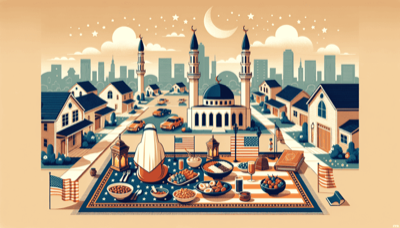We're here to help you keep count of the days to or since a date. Just click the button below and enter your chosen date to get started. Also choose the suggested days or search for a special day above #countingthedays

Eid al-Adha, also known as the Festival of Sacrifice, is one of the two most important Islamic holidays celebrated by Muslims worldwide. Its origins lie in the Quranic recounting of Prophet Ibrahim's (Abraham's) willingness to sacrifice his son as an act of obedience to God before God replaces his son with a ram to be sacrificed instead.
Eid al-Adha commemorates this act of faith and submission, with Muslims across the world performing Qurbani, the ritual animal sacrifice. The meat from the sacrifice is divided into three parts: one part for the family, one part for friends and relatives, and one part for the needy.
In the United States, Eid al-Adha is not a public holiday; however, many Muslims take time off work or school to celebrate. Large congregations for prayers are held in mosques and community centers. The American Muslim community honors this day through:
Special Prayers: Eid prayers are offered in large groups. Prayer gatherings may take place in mosques or larger venues like parks or convention centers to accommodate bigger crowds.
Animal Sacrifice: The practice of Qurbani is carried out according to individual capabilities and local laws pertaining to animal slaughter.
Charitable Giving: An integral part of Eid al-Adha is giving to the poor. Many American Muslims donate money or portions of their sacrificed meat to those in need.
Feasting: Sharing meals with family and friends is customary.
Social Gatherings: It's common for Muslim families in the U.S. to host or attend social gatherings where they dress up in new or special clothes, exchange gifts, and engage in various festive activities.
Educational Events: Some communities may organize educational events about the significance of Eid al-Adha for both Muslims and people from other faiths or backgrounds.
As Islam is practiced diversely across cultures within America, traditions can vary widely based on ethnic backgrounds and local customs.